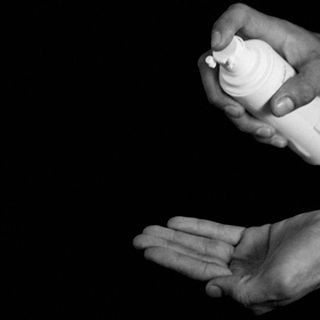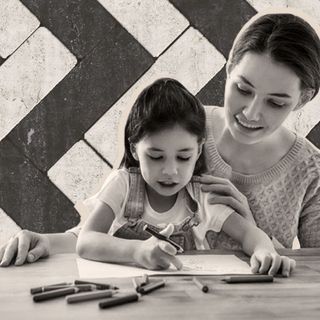
Mental Health Struggles Are Common After Miscarriage, but Women Get Little to No Support
Instead, they often get blamed — or told another pregnancy will solve their problems.

“Next time, just don’t tell people you’re expecting.”
“You caused your own miscarriage by being hyperactive.”
“I blame myself for my miscarriage. My body is capable and should be able to handle pregnancies.”
In India, it’s not uncommon to hear these statements to explain a miscarriage. It’s also not uncommon for friends and family, society or the woman herself, to label a women as “barren or “infertile,” after a pregnancy loss. While not only factually incorrect — most miscarriages are caused by naturally occurring genetic errors in the embryo — these attitudes can prompt or worsen the grief, depression, or anxiety experienced by many women after a pregnancy loss.
“For some women, physical and emotional healing happens fairly quickly. For others, it can take longer – months or even a year. And for many women, although their grief will become less acute over time, miscarriage is a loss they always carry with them,” says Dr Keki Pardiwala, a psychiatrist at Joy Motherhood Hospital in Mumbai. Pardiwala says that any mental health struggles after a miscarriage should be taken seriously. “The birth of a healthy child does not resolve [them],” he adds.
Unfortunately, people, including doctors, have little or no training in providing grief support or counselling, says Aanchal Kumar, a woman who has had three miscarriages, which leaves many women to struggle in silence.
“Everyone’s training is in finding a cure or fixing the pain, which may mean suggesting a timeline they feel is appropriate for you to try again,” she says. “Friends and family, to avoid seeing you hurting, will most likely suggest to conceive as … the best balm to heal you.”
However, a 2011 study found the depression and anxiety women may experience after a pregnancy loss can continue for years — even after the birth of a healthy child.
Read more: Five Important Facts About Miscarriage
“Our study clearly shows that the birth of a healthy baby does not resolve the mental health problems that many women experience after a miscarriage or stillbirth,” Emma Robertson, PhD, an assistant professor of psychiatry at the University of Rochester Medical Center and lead researcher, said at the time. “This finding is important because, when assessing if a women is at risk of antenatal or postnatal depression, previous pregnancy loss is usually not taken into account in the same way as other risk factors such as a family history of depression, stressful life events or a lack of social support.”
It is true for India, too. “Until I said I had suffered a miscarriage, I wasn’t even asked about it,” says Siddhi Patel, a 34-year-old who recently gave birth after experiencing a previous miscarriage. Patel is currently suffering from postnatal depression and undergoing counselling. “It’s like loss from a miscarriage is almost nil — ‘How can we be attached to an unborn baby?'”
The feelings of loss can compound — for an individual, but also a society. India’s rate of recurrent miscarriage — that is, a woman’s spontaneous loss of three pregnancies in a row, each before 20 weeks’ gestation — is higher than the global average; according to a 2015 study published in the Journal of Obstetrics and Gynecology of India, an estimated 7% of Indian women experience recurrent miscarriage, compared to 1% of women worldwide, due to naturally non-viable embryos, but also undiagnosed infectious diseases and environmental factors.
But miscarriage isn’t about how many it affects. It’s also about how it affects. Researcher Robertson had also said, “We know that maternal depression can have adverse impacts on children and families.” She had added, “If we offer targeted support during pregnancy to women who have previously lost a baby, we may be able to improve health outcomes for both the women and their children.”
Agrees Dr Pardiwala. “Early recognition of symptoms can lead to preventive interventions and that, in turn, can help us reduce the burden of illness, compose coping strategies to reduce anxiety and depression to promote healthy adjustment of the mother, family and child,” he says.
But the onus is still largely on women to piece together support for themselves. “Confide in friends who will listen without trying to fix you. You are not broken; you are grieving. And one day it will feel easier than it does today,” recommends Dr Pooja Goyal, a Mumbai-based psychotherapist. While grief affects everyone differently, she adds, “whatever you’re feeling is normal, has been felt by others before you. If you need it, seek professional help to get through this.”
Anubhuti Matta is an associate editor with The Swaddle. When not at work, she's busy pursuing kathak, reading books on and by women in the Middle East or making dresses out of Indian prints.
Related


What Is Executive Functioning in Children?
